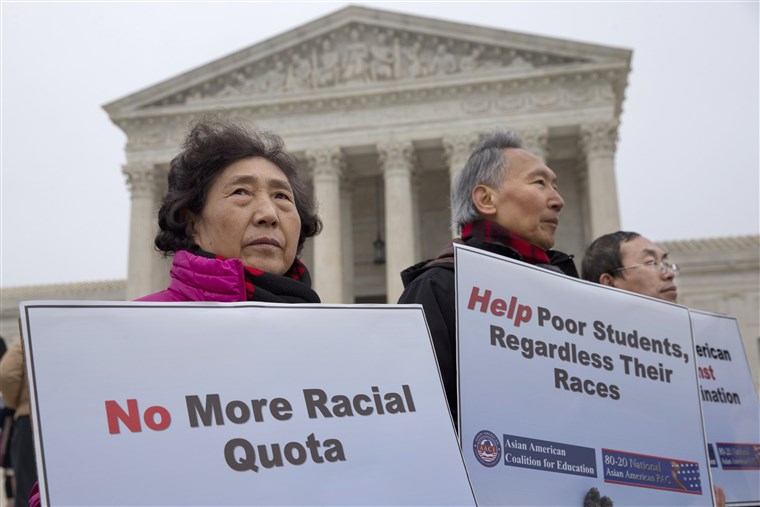Last Thursday, the U.S. Department of Justice announced that it had filed court documents siding with Students for Fair Admissions, a group that includes more than a dozen Asian-American students who were denied admission by Harvard University.
This was the latest development in a lawsuit the group launched in 2014, claiming that the university has been discriminating against Asian-Americans in the admissions process. As one side argues for more meritocracy and another calls for maintaining the status quo, data from the case suggests that taking a class-based admissions approach might be the best way to reconcile both sides.
HOW HAS RACE BEEN USED IN THE HARVARD ADMISSIONS OFFICE?
The use of race in the college admissions process has been much debated since passing the 1964 Civil Rights Act. According to Title VI, “No person in the United States shall, on the ground of race, color, or national origin, be excluded from participation in, be denied the benefits of, or be subjected to discrimination under any program or activity receiving Federal financial assistance.”
Harvard University continues to dispute claims made by Students for Fair Admissions that the school is doing just that.
Upon examining the evidence, Students for Fair Admissions may have some legitimate grievances against the university. For example, according to an internal study conducted by Harvard in 2013, if the institution made academic achievement the sole factor of the admissions process, 43% of the student body would be Asian-American. Currently, only about 22% of the students that attend Harvard are Asian-American. According to court documents, Asian-Americans significantly outperformed applicants of any other ethnic or racial group in both academics and extracurriculars, yet, due to Harvard’s ambiguous admissions system, many struggled to be admitted.
THE COMPLICATED LANDSCAPE OF COLLEGE ADMISSIONS
How then should admissions officers evaluate applicants to Harvard? Certainly one can argue that Harvard should be forced to increase the total number of admitted students with its endowment of $37.1 billion. Not only would it violate the freedom of a private institution to determine its own aspirations, but it would also result in the government compelling a private institution to fund programs it is not equipped to sustain.
Another position would be to completely overhaul the personal rating system and rely solely on the academic and extracurricular record. Nevertheless, this suggestion also comes up short because some applicants who could succeed at Harvard will no longer be considered for admittance. By looking too narrowly at an applicant, an admissions team would overlook life experiences that are not easily quantified as either academic or extracurricular. For example, soft skills such as time management, courtesy and respect are not easily quantifiable or interpretable from an academic profile.
One might be able to find an answer to this problem within the lawsuit itself. While Students for Fair Admissions lists its grievances against Harvard, the plaintiffs also offer a policy recommendation for the university—using socioeconomic status instead of race as a factor for admissions. They note that some universities, like the University of Colorado, already have such a policy in place and that they have seen both racial and socioeconomic diversity rise since adopting a class-based admissions approach.
Harvard University and the Students for Fair Admissions are currently expected to begin their battle in court next month. Although it may appear to be just another battle between a university and students, it is important that this high profile case be watched carefully.
Regardless of the outcome in the first round, both sides may see it in their best interest to take this case all the way up to the U.S. Supreme Court. If it comes to that, then how a university operates could be vastly transformed in the next few years.







